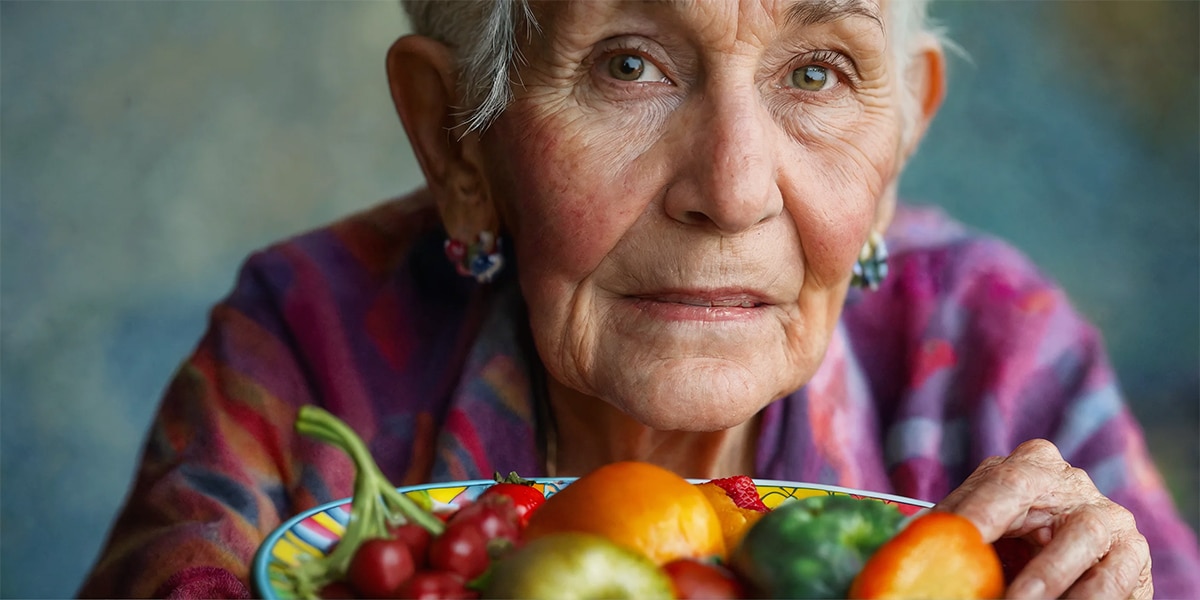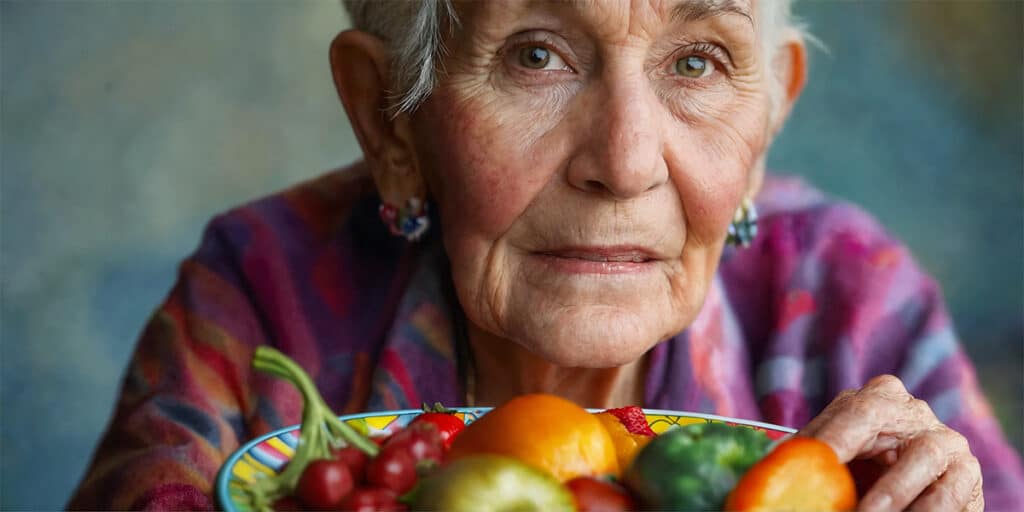- 1. The Foundation of Oral Cancer Prevention Through Diet
- 2. Nutrients That Fight Against Oral Cancer
- 3. Navigating Away from Cancer-Promoting Foods
- 4. Crafting a Diet to Combat Oral Cancer
- 5. Cultivating a Diet that Defends Against Oral Cancer
- 6. Harnessing Real-Life Experiences and Professional Wisdom
- 7. Essential Insights for Nourishing Your Way to Health
- 8. Nutrition Tips to Lower Oral Cancer Risk: Your FAQs Answered
In an era where health consciousness is more pivotal than ever, the link between diet and cancer risk, particularly oral cancer, is increasingly coming to the forefront of medical research.
This article aims to shed light on how specific nutritional choices can play a significant role in lowering the risk of oral cancer, providing a guide rooted in the latest scientific findings and expert opinions. It’s not just about what to avoid, but also about what to embrace in your diet to bolster your defenses against this disease.
The Foundation of Oral Cancer Prevention Through Diet
Emerging evidence underscores the profound impact that dietary habits have on oral health and cancer risk. From antioxidant-rich fruits and vegetables to the detrimental effects of processed foods and sugars, the connection between what we eat and oral cancer is both complex and compelling.
- Antioxidants in berries and leafy greens combat oxidative stress, a precursor to cancer.
- Omega-3 fatty acids, found in fish, have been linked to reduced inflammation and cancer risk.
- Alcohol, particularly when consumed excessively, can increase the likelihood of oral cancer.
Nutrients That Fight Against Oral Cancer
Delving deeper into the nutritional arsenal against oral cancer reveals specific vitamins and minerals as critical allies. Vitamin C, beta-carotene, selenium, and folate emerge as key components in a cancer-preventive diet.
- Vitamin C: A powerful antioxidant found in citrus fruits, bell peppers, and strawberries.
- Beta-carotene: Present in carrots, sweet potatoes, and kale, this nutrient is converted into vitamin A, which supports mucous membrane health.
- Selenium: A trace mineral with antioxidant properties, selenium is abundant in Brazil nuts and seafood.
- Folate: Found in legumes, leafy greens, and avocados, folate plays a role in DNA repair and replication.
Navigating Away from Cancer-Promoting Foods
Equally as vital as adding cancer-fighting foods to your diet is the conscious effort to limit or eliminate those that could potentially increase your risk of oral cancer. The journey to optimal oral health involves not just embracing nutritious foods but also steering clear of those known to have adverse effects on your body’s well-being. Processed meats, excessive alcohol, and sugary snacks stand out as significant contributors to an increased risk of oral cancer and therefore merit particular attention in your dietary choices.
The Hidden Risks in Processed Meats
Processed meats, such as sausages, bacon, and deli meats, often contain preservatives like nitrates and nitrites, which can form cancer-causing compounds in the body. Studies, including findings published in the World Health Organization’s International Agency for Research on Cancer, have classified processed meats as carcinogenic to humans, linking their consumption to an increased risk of several types of cancer, including oral cancer. Limiting these foods in your diet can significantly reduce your exposure to these harmful compounds.
Alcohol: Moderation is Key
While enjoying a glass of wine or a beer might be part of social gatherings or dinner routines, excessive alcohol consumption is a well-documented risk factor for oral cancer. Alcohol acts as a solvent, enhancing the penetration of other carcinogens into the cells lining the mouth. Additionally, it can cause nutritional deficiencies and chronic inflammation, further increasing cancer risk. Moderation in alcohol consumption, as recommended by health guidelines, can help mitigate these risks, contributing to both oral health and overall well-being.
Sugary Snacks: A Double-Edged Sword
The high sugar content in snacks and beverages not only contributes to dental problems like cavities and gum disease but also promotes an environment conducive to cancer development. Sugar feeds the harmful bacteria in the mouth, leading to acid production that can damage tooth enamel and oral tissues. This damage can create entry points for carcinogens, elevating the risk of oral cancer. Reducing the intake of sugary snacks and drinks, and opting for healthier alternatives, can play a crucial role in maintaining oral hygiene and reducing cancer risk.
Embracing a Healthier Dietary Path
By consciously choosing to limit the intake of cancer-promoting foods, you embark on a path towards improved oral health and a lower risk of oral cancer. This dietary vigilance, combined with a balanced intake of cancer-fighting nutrients, forms a comprehensive approach to cancer prevention. It’s a testament to the power of dietary choices in influencing health outcomes, highlighting the importance of informed eating habits in the fight against oral cancer.
Crafting a Diet to Combat Oral Cancer
The strategy to lower oral cancer risk through diet involves a holistic approach that transcends mere food choices—it’s about cultivating a lifestyle that nurtures your body from the inside out. This comprehensive eating pattern prioritizes whole foods, leans heavily on plant-based nutrients, and ensures adequate hydration, all while limiting the intake of processed foods and sugars known to exacerbate cancer risk.
Whole Foods: Nature’s Bounty for Oral Health
Whole foods, unrefined and minimally processed, retain their nutritional integrity and are rich in vitamins, minerals, and fiber that are essential for health. A study published in the Journal of the American Dietetic Association emphasizes the protective role of dietary fiber found in whole foods against various cancers, including those of the oral cavity. Dr. Elaine Peterson, a nutritionist specializing in cancer prevention, notes, “Incorporating a variety of whole grains, legumes, fruits, and vegetables into your diet can significantly bolster your body’s defenses against cancerous changes.”
The Power of Plant-Based Nutrients
Plant-based diets are renowned for their health benefits, including cancer prevention. Rich in phytochemicals and antioxidants, these diets help combat inflammation and oxidative stress—two processes closely linked with cancer development. The American Institute for Cancer Research highlights vegetables like cruciferous vegetables (broccoli, cauliflower) and fruits (berries, citrus) as particularly beneficial due to their high antioxidant content. “Shifting towards a plant-based diet doesn’t just lower oral cancer risk; it’s a cornerstone of holistic health,” asserts Dr. Peterson.
Hydration: A Simple yet Effective Tool
Adequate hydration is crucial for maintaining oral hygiene and, by extension, reducing cancer risk. Water helps rinse away food particles and bacteria, reducing the risk of plaque formation. Furthermore, saliva, which is predominantly water, plays a vital role in neutralizing acids and distributing essential minerals throughout the mouth. Anecdotal evidence from patients who increased their water intake reports not just improved oral health but also enhanced overall vitality.
Minimizing Processed Foods and Sugars
Processed foods and high-sugar diets are detrimental to oral health, creating an acidic environment conducive to cancer development. Sugars, in particular, feed harmful bacteria in the mouth, leading to increased plaque and tartar build-up. Dr. Linda Smith, a dental oncologist, warns, “Regular consumption of sugary and processed foods can significantly elevate the risk of oral cancer by promoting an environment where cancerous cells thrive.” Opting for natural, unprocessed foods can dramatically reduce these risks.
Incorporating Healthy Fats
While the focus is often on what to avoid, incorporating healthy fats—such as omega-3 fatty acids found in fish, flaxseeds, and walnuts—into your diet can also play a preventive role against oral cancer. Research in the Journal of Nutritional Biochemistry suggests that omega-3 fatty acids possess anti-inflammatory properties that may help thwart the development of cancer cells in the oral cavity.
| Nutrient | Source | Benefits | Daily Recommendation | Role in Cancer Prevention |
|---|---|---|---|---|
| Antioxidants (Vitamins C & E) | Citrus fruits, almonds, sunflower seeds | Combats oxidative stress | Varies by vitamin | Repairs cellular damage |
| Beta-carotene | Carrots, sweet potatoes, spinach | Boosts immune system | 2-4 servings of fruits/vegetables | Converts to Vitamin A, supports mucous membranes |
| Omega-3 Fatty Acids | Salmon, flaxseeds, walnuts | Reduces inflammation | 2 servings of fish/week | Inhibits tumor growth |
| Folate | Legumes, leafy greens, avocados | Supports DNA repair | 400 mcg | Prevents DNA changes that could lead to cancer |
| Selenium | Brazil nuts, seafood, eggs | Antioxidant properties | 55 mcg | Protects cells from damage |
Cultivating a Diet that Defends Against Oral Cancer
Embracing dietary choices that fortify your body’s defenses against oral cancer can dramatically shift your health trajectory. The essence of such an empowered approach lies in the simplicity of choosing natural, nutrient-dense foods over those altered by processing. This section dives into practical, empowering strategies to enhance your diet for oral cancer prevention.
Whole Foods Over Processed: The Foundation of a Cancer-Fighting Diet
Choosing whole grains, fresh fruits, and vibrant vegetables over processed options is not merely a dietary preference but a powerful strategy in cancer prevention. Whole foods are packed with essential nutrients, fiber, and antioxidants, which collectively work to strengthen your body’s natural defenses. Unlike processed foods, which often contain harmful additives and reduced nutritional content, whole foods provide a spectrum of benefits that support oral health and reduce the risk of cancer. Nutritionists consistently emphasize the importance of integrating whole grains like oats, quinoa, and brown rice, alongside a rainbow of fruits and vegetables, to harness the maximum protective benefits against oral cancer.
Colorful Plates: An Indicator of Nutritional Wealth
A visually appealing plate filled with a variety of colors isn’t just aesthetically pleasing—it’s indicative of a meal rich in diverse nutrients. Each color in fruits and vegetables represents a different set of phytochemicals and nutrients that your body needs to combat potential carcinogens. For instance, the deep reds of tomatoes and berries are rich in lycopene and anthocyanins, while the vibrant oranges of carrots and sweet potatoes are loaded with beta-carotene, all known for their cancer-fighting properties. Making a conscious effort to “eat the rainbow” ensures a broad intake of these essential compounds, bolstering your oral health and overall wellness.
Implementing Empowered Choices for Maximum Impact
Adopting these empowered dietary choices—prioritizing whole foods, embracing a colorful diet, and ensuring adequate hydration—forms a solid foundation in your arsenal against oral cancer. These strategies not only aim at reducing the risk of oral cancer but also promote a holistic approach to health that can improve your quality of life. By making these conscious choices daily, you empower yourself with the tools needed to defend against oral cancer and embrace a healthier future.
Harnessing Real-Life Experiences and Professional Wisdom
The journey to understanding and implementing a diet that can significantly impact oral cancer prevention is enriched by the stories of those who have walked this path before us. Personal anecdotes from individuals who have faced the specter of oral cancer or who have markedly improved their oral health through deliberate dietary modifications serve as beacons of hope and concrete proof of the power of nutrition.
Living Testimonies: The Human Element of Dietary Change
One such story comes from Alex, who, after a diagnosis of precancerous lesions in the mouth, took to revamping his diet completely. He shares, “The shift to a plant-based diet, filled with greens, fruits, and whole grains, wasn’t just a dietary change—it was a life change. Over months, not only did my oral health improve, but my entire wellbeing transformed. It was as if my body thanked me for making the switch.” Alex’s journey highlights the profound, personal impact of dietary choices on health outcomes.
Similarly, Jenna, who once grappled with persistent oral health issues, found relief and resilience through hydration and reducing processed foods. “Increasing my water intake and cutting out sugary snacks made a visible difference not just in my oral health but in my energy levels and overall health,” Jenna notes. These stories underscore the tangible benefits of simple, yet impactful dietary shifts.
Expert Insights: Bridging Nutrition and Oral Cancer Prevention
Complementing these personal narratives are the insights from professionals at the frontline of dietary research and cancer care. Dr. Simone Patel, a renowned oncologist, emphasizes, “The correlation between diet and oral cancer risk is undeniable. Nutrients from a balanced, whole-food-based diet can significantly reduce inflammation and combat the carcinogens we’re exposed to daily.”
Dietitian Emma Lopez adds, “We see time and again how dietary changes can not only prevent disease but also aid in recovery and improve quality of life. Foods rich in antioxidants, for example, play a crucial role in neutralizing free radicals that can lead to cancer.”
A Collective Journey Towards Prevention
Both personal stories and expert opinions paint a comprehensive picture of how diet intersects with oral cancer risk and prevention. They highlight not just the scientific backing for dietary interventions but also the human experience of implementing these changes and witnessing their profound effects. This blend of lived experiences and professional knowledge serves to inspire and guide others in making informed choices about their diet, underscoring the critical role of nutrition in the fight against oral cancer.
Essential Insights for Nourishing Your Way to Health
The path to reducing oral cancer risk through diet is illuminated by several key takeaways, each offering a strategic approach to leveraging nutrition as a powerful tool in your health arsenal. Understanding these can empower you to make informed choices that significantly contribute to your overall well-being and specifically to oral cancer prevention.
Antioxidants: Your First Line of Defense Against Oral Cancer
Incorporating foods rich in antioxidants into your daily diet is paramount. These potent compounds, found abundantly in fruits and vegetables like berries, leafy greens, and beans, combat oxidative stress and inflammation, both of which can contribute to cancer formation. The role of antioxidants goes beyond mere prevention; they are fundamental in protecting cells from DNA damage and supporting the body’s natural repair processes. Making antioxidant-rich foods a staple in your meals ensures a continuous supply of these protective agents, fortifying your defenses against oral cancer.
Omega-3s: The Unsung Heroes of Oral Cancer Prevention
Omega-3 fatty acids, often overshadowed in discussions about diet and cancer prevention, deserve a spotlight for their significant anti-inflammatory properties. Found in fish like salmon and plant sources such as flaxseeds and walnuts, omega-3s can help reduce the chronic inflammation that may lead to cancer. By incorporating omega-3-rich foods into your diet, you’re not just combating inflammation but also enhancing your body’s ability to prevent the development and spread of cancer cells.
A Balanced Diet: The Holistic Approach to Lowering Cancer Risk
The cornerstone of cancer prevention lies in maintaining a balanced, nutrient-rich diet. This holistic approach encompasses a wide variety of nutrients that work together to strengthen the body’s defense mechanisms. A diet that includes a broad spectrum of fruits, vegetables, whole grains, and lean proteins ensures that you’re not only getting the vitamins and minerals your body needs to function optimally but also the dietary fiber that supports digestive health—a critical aspect of preventing cancer. Embracing a balanced diet is about creating harmony within your body, where every nutrient plays a role in maintaining health and warding off disease.
Implementing These Dietary Strategies
Understanding these key takeaways provides a foundation upon which to build a diet that supports oral health and reduces cancer risk. By prioritizing antioxidants, omega-3s, and a balanced diet, you’re taking proactive steps toward not only preventing oral cancer but also promoting overall health and longevity. These strategies underscore the profound impact of diet on our health and the power we hold in making choices that nourish and protect our bodies.
Nutrition Tips to Lower Oral Cancer Risk: Your FAQs Answered
What role does diet play in oral cancer prevention?
A balanced diet rich in vitamins, minerals, and antioxidants plays a crucial role in strengthening the body’s defenses against oral cancer by combating oxidative stress and inflammation.
How can antioxidants help in preventing oral cancer?
Antioxidants like vitamins C and E repair cellular damage and neutralize harmful free radicals, reducing the risk of cancerous mutations in oral cells.
Are there specific foods known to reduce oral cancer risk?
Yes, foods high in beta-carotene, folate, and omega-3 fatty acids, such as leafy greens, citrus fruits, and fatty fish, are associated with a lower risk of oral cancer.
Can dietary choices really make a difference in cancer prevention?
Absolutely. Consuming a nutrient-rich diet while avoiding processed foods and excessive alcohol can significantly decrease the risk of developing oral cancer.
What is the recommended daily intake of fruits and vegetables for cancer prevention?
Experts recommend at least 5 servings of fruits and vegetables per day to harness their antioxidant and anti-inflammatory benefits.
How does omega-3 fatty acid intake affect oral cancer risk?
Omega-3 fatty acids, found in fish like salmon, have anti-inflammatory properties that can inhibit tumor growth and reduce cancer risk.
Why is hydration important for oral cancer prevention?
Staying hydrated aids in saliva production, which helps wash away food particles and bacteria, reducing the risk of oral cancer.
Can cutting out sugary snacks impact oral cancer risk?
Yes, reducing sugar intake can decrease the risk of cavities and gum disease, which, if left untreated, can lead to increased cancer risk.
Is there a link between alcohol consumption and oral cancer?
Yes, excessive alcohol consumption is a significant risk factor for oral cancer. Moderation is key to reducing this risk.
Can vitamins and supplements replace a healthy diet for cancer prevention?
While vitamins and supplements can help fill nutritional gaps, they should not replace a diet rich in whole foods for optimal cancer prevention.
Citations
- “Association between Oral Cancer and Diet: An Update” by Jesús Rodríguez-Molinero, Blanca del Carmen Migueláñez-Medrán, Cristina Puente-Gutiérrez, Esther Delgado-Somolinos, Carmen Martín Carreras-Presas, Javier Fernández-Farhall, Antonio Francisco López-Sánchez. This study presents the main risk factors related to oral cancer as well as the identification of these factors and the different prevention strategies currently available.
- “IARC Perspective on Oral Cancer Prevention” by Véronique Bouvard, Suzanne T. Nethan, Deependra Singh, Saman Warnakulasuriya, Ravi Mehrotra, Anil K. Chaturvedi, Tony Hsiu‐Hsi Chen, Olalekan A. Ayo‐Yusuf, Prakash C. Gupta, Alexander R. Kerr, Wanninayake M. Tilakaratne, Devasena Anantharaman, David I. Conway, Ann Gillenwater, Newell W. Johnson, Luiz P. Kowalski, Maria E. Leon, Olena Mandrik, Toru Nagao, Vinayak M. Prasad, Kunnambath Ramadas, Felipe Roitberg, Pierre Saintigny, Rengaswamy Sankaranarayanan, Alan R. Santos‐Silva, Dhirendra N. Sinha, Patravoot Vatanasapt, Rosnah B. Zain, and Béatrice Lauby‐Secretan. This report outlines how deaths from oral cancer can be prevented and consolidates the scientific foundations for advancing policies on oral cancer prevention.
- “Nutrition as Prevention for Improved Cancer Health Outcomes“. This systematic review discusses the role of nutrition in the prevention of cancer.
- “Role of Diet and Nutrition in Cancer: Prevention, Treatment and Survivorship“. This article provides an overview of the role of diet and nutrition in cancer prevention and treatment.
- “Nutrition and Cancer: From Prevention to Survivorship“. This article discusses the importance of nutrition in cancer prevention and survivorship.
- “Third Expert Report – American Institute for Cancer Research“. This report synthesizes the Expert Panel’s findings and developed ten recommendations for cancer prevention.








